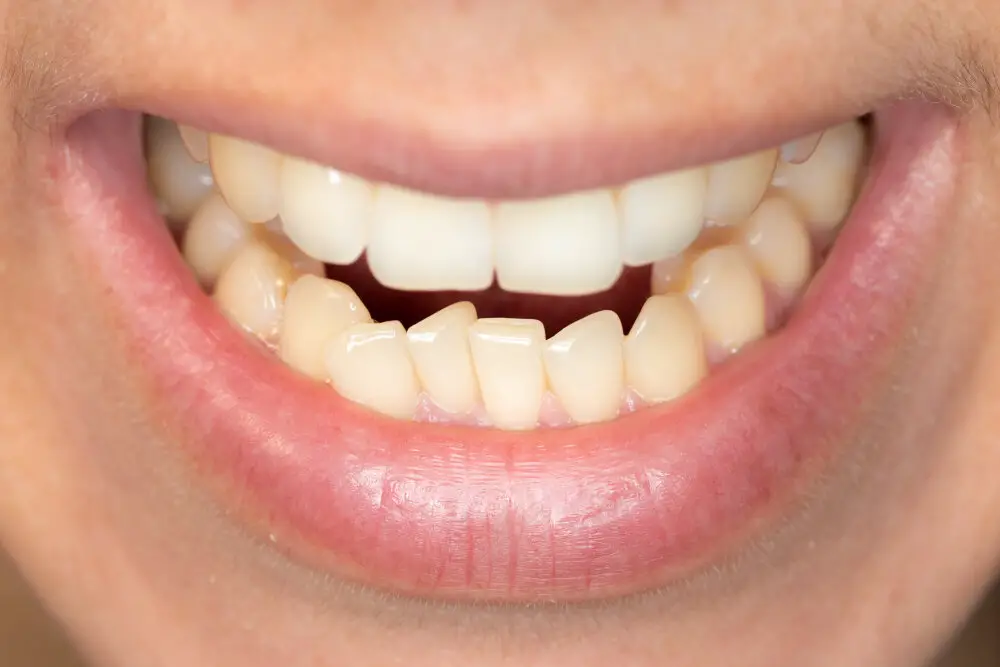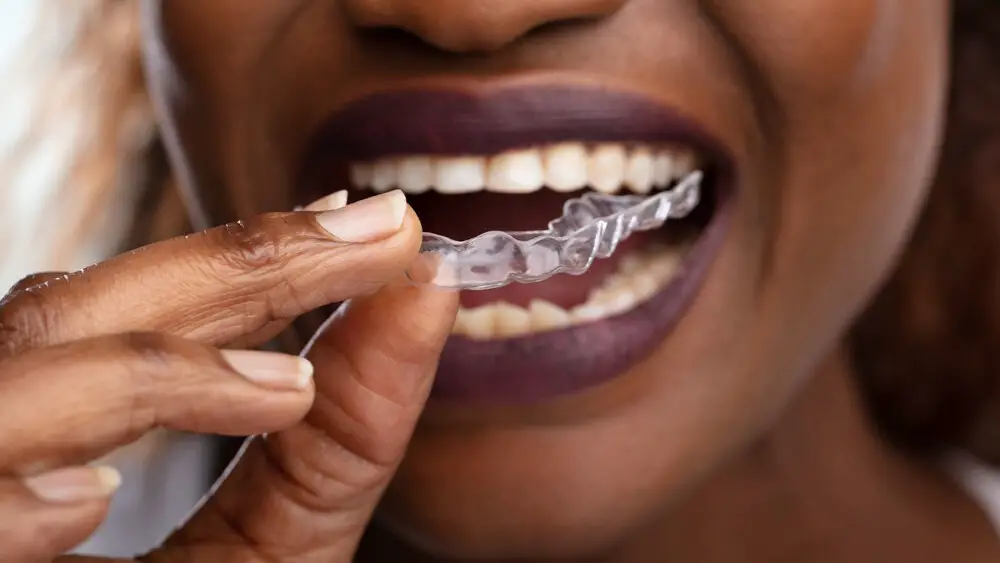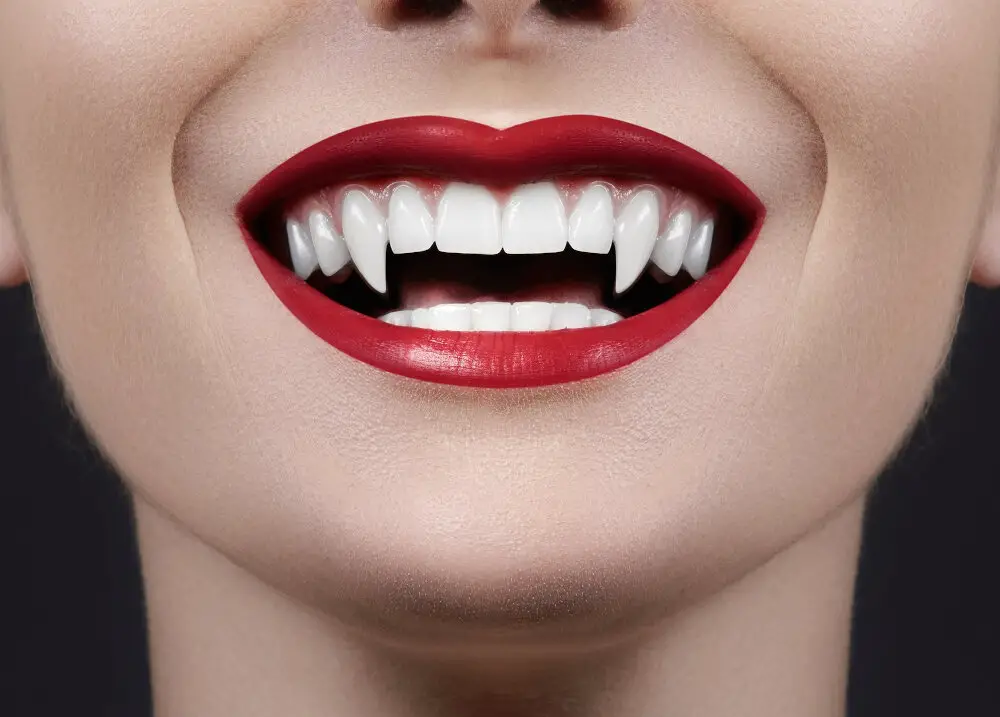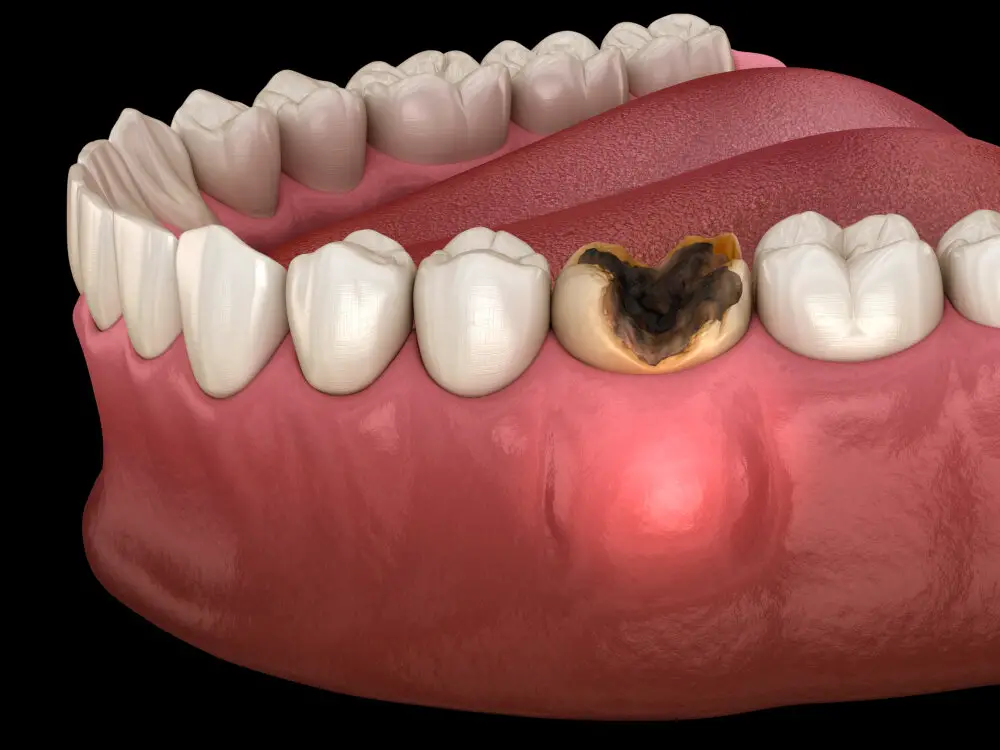Why Does Brushing My Teeth Make My Mouth Bleed? Exploring the Causes and Solutions

Maintaining good oral hygiene is essential for a healthy lifestyle, and brushing your teeth twice a day is an integral part of it. However, many people experience bleeding gums while brushing their teeth, which can be quite alarming. Bleeding gums can be caused by a variety of reasons, from poor oral hygiene to underlying medical conditions. Therefore, it is essential to understand the causes and solutions to prevent bleeding gums and maintain optimal oral health. Bleeding gums can be a sign of gingivitis, a mild form of gum disease caused by plaque buildup on teeth. Plaque is a sticky film of bacteria that accumulates on teeth and gums, leading to inflammation and bleeding. Other factors that can contribute to bleeding gums include brushing too hard, using a hard-bristled toothbrush, vitamin deficiencies, hormonal changes, and certain medications. Understanding these causes can help individuals take necessary steps to prevent bleeding gums and improve oral health. In this article, we will explore the various causes of bleeding gums and the solutions to maintain healthy teeth and gums.
Understanding Gum Health

Understanding gum health is crucial to maintaining good oral hygiene. Gum disease, also known as periodontal disease, is a common condition that affects millions of people worldwide. It occurs when bacteria in the mouth build up and form plaque on the teeth and gums. If left untreated, gum disease can cause inflammation, bleeding, and eventual tooth loss. The early stages of gum disease are often painless, making it difficult to detect without regular dental check-ups. Therefore, it is essential to pay close attention to any signs of bleeding or discomfort in the gums. Several factors can contribute to the development of gum disease. Poor oral hygiene, smoking, and certain medical conditions such as diabetes can increase the risk of gum disease. Additionally, genetics may play a role in the development of gum disease. It is essential to maintain good oral hygiene habits, including brushing and flossing regularly, to prevent the buildup of plaque and bacteria in the mouth. Regular dental check-ups can also help detect early signs of gum disease and prevent further damage to teeth and gums. Overall, understanding the importance of gum health is essential to maintaining good oral hygiene and preventing more serious dental issues.
Gums, also known as gingiva, play a crucial role in maintaining oral health. They act as a protective barrier for the teeth and underlying bone, keeping harmful bacteria and debris from entering the bloodstream. Healthy gums are firm, pink, and do not bleed when brushed or flossed. However, poor oral hygiene, such as infrequent brushing and flossing, can lead to the buildup of plaque and tartar around the gum line. This can cause inflammation, swelling, and bleeding of the gums, a condition known as gingivitis. If left untreated, gingivitis can progress to periodontitis, a severe gum disease that can lead to tooth loss and other health problems. Therefore, it is crucial to maintain good oral hygiene practices and visit a dentist regularly to ensure healthy gums and prevent oral health problems.
Gum problems are a common issue faced by many individuals, which can lead to bleeding, inflammation, and discomfort. One of the most prevalent gum problems is gingivitis, which occurs due to the buildup of plaque and bacteria on the teeth and gums. This causes the gums to become inflamed and tender, making them prone to bleeding during brushing or flossing. Another common gum problem is periodontitis, which is a more severe form of gum disease that can lead to tooth loss if left untreated. Poor oral hygiene, smoking, genetics, and certain medical conditions can also contribute to gum problems. Regular brushing, flossing, and dental checkups are essential for maintaining healthy gums and preventing gum disease.
Gum disease, also known as periodontal disease, is a common dental problem that affects many people worldwide. It develops when bacteria in the mouth form a sticky film called plaque, which builds up on the teeth and gums. Over time, the plaque hardens into tartar, which can only be removed by a professional dental cleaning. The bacteria in plaque and tartar produce toxins that irritate the gums, causing inflammation and bleeding. If left untreated, gum disease can progress and lead to more serious dental problems, including tooth loss. Therefore, practicing good oral hygiene, such as brushing and flossing regularly, is essential in preventing and treating gum disease.
Causes of Bleeding Gums

Bleeding gums are a common dental issue that many people experience at some point in their lives. There are several causes of bleeding gums, including poor oral hygiene, gum disease, hormonal changes, and certain medications. Poor oral hygiene is one of the most common causes of bleeding gums. When you don’t brush and floss your teeth regularly, plaque builds up on your teeth and gums. This plaque can cause inflammation, which can lead to bleeding when you brush or floss. It’s important to brush your teeth twice a day and floss at least once a day to prevent plaque buildup and keep your gums healthy. Gum disease is another common cause of bleeding gums. Gum disease occurs when plaque buildup causes inflammation and infection in your gums. In the early stages of gum disease, called gingivitis, you may experience bleeding gums, bad breath, and gum sensitivity. If left untreated, gingivitis can progress to periodontitis, a more severe form of gum disease that can cause tooth loss. Regular dental check-ups and cleanings can help prevent gum disease and detect it early if it does occur. If you’re experiencing bleeding gums, it’s important to speak to your dentist about the possible causes and solutions.
Poor oral hygiene habits can lead to a variety of dental problems such as bleeding gums, bad breath, cavities, and gum disease. Neglecting to brush and floss regularly can cause harmful bacteria to accumulate in the mouth, which can result in infections and inflammation in the gums. Additionally, consuming sugary and acidic foods and drinks can break down the enamel on teeth and increase the risk of decay. It is important to maintain good oral hygiene habits, including brushing twice a day, flossing daily, and visiting the dentist regularly to prevent these issues and promote overall oral health.
Certain medications can have an adverse effect on gum health. Some drugs such as antihistamines, antidepressants, and blood pressure medications can cause dry mouth, which reduces the production of saliva. Saliva plays an essential role in washing away harmful bacteria from the mouth, and a lack of it can lead to an increase in plaque and gum inflammation. Additionally, certain medications like phenytoin and cyclosporine can cause gum overgrowth, leading to pockets around the teeth where bacteria can accumulate and cause further damage. It is crucial to speak to your healthcare provider about any medication you are taking and how it may affect your gum health.
Bleeding gums can be caused by a variety of medical conditions. One of the most common is gingivitis, which is caused by the buildup of plaque on the teeth. Other conditions that can contribute to bleeding gums include periodontitis, a more advanced form of gum disease, as well as vitamin deficiencies and certain medications, such as blood thinners. Additionally, systemic diseases like leukemia and diabetes can also cause bleeding gums. It is important to identify the underlying cause of bleeding gums in order to properly treat the condition and prevent further damage to the gums and teeth.
Solutions for Bleeding Gums

Bleeding gums can be a sign of poor oral hygiene, but thankfully, there are solutions. One of the most effective solutions is to improve your oral hygiene routine. This means brushing your teeth twice a day and flossing once a day. When brushing, make sure to use a soft-bristled toothbrush and gentle circular motions. Brushing too hard can actually cause more damage to your gums and make them bleed even more. Additionally, using an antiseptic mouthwash can help kill bacteria in your mouth and promote healing of your gums. Regular dental checkups and cleanings are also important to maintain good oral health and prevent bleeding gums. Another solution for bleeding gums is to improve your diet and lifestyle. A diet rich in vitamins and minerals, especially vitamin C, can help strengthen your gums and reduce inflammation. Quitting smoking is also important, as smoking can cause gum disease and make it harder for your gums to heal. Finally, managing stress can also help reduce inflammation in your body, including your gums. Practicing relaxation techniques such as meditation, yoga, or deep breathing can help reduce stress and promote healing. By improving your oral hygiene routine, diet, and lifestyle, you can effectively treat and prevent bleeding gums.
Proper brushing and flossing techniques are essential in maintaining good oral hygiene and preventing bleeding gums. Brushing should be done twice a day for at least two minutes each time, using a soft-bristled toothbrush and a fluoride toothpaste. The toothbrush should be held at a 45-degree angle to the gum line and moved in a circular motion, gently scrubbing the teeth and gums. Flossing should be done once a day, using a piece of floss about 18 inches long. The floss should be wrapped around the middle fingers of each hand and gently guided between the teeth, curving it into a C-shape around each tooth and sliding it up and down to remove any plaque or food particles. By following these techniques, you can maintain healthy teeth and gums and avoid bleeding during brushing.
Mouthwash and other oral hygiene products can be helpful in maintaining good oral health. Mouthwash can help to kill bacteria in the mouth, freshen breath, and prevent cavities. However, it is important to choose a mouthwash that is alcohol-free and to avoid using it too frequently as it can cause dry mouth and irritation. Other products such as fluoride toothpaste and floss can also be beneficial in preventing bleeding gums. Brushing twice a day and using these products can help to maintain healthy teeth and gums and prevent bleeding during brushing. Additionally, regular visits to the dentist for cleanings and check-ups can help to identify and address any oral health issues.
In addition to regular brushing and flossing, making dietary changes can help improve gum health. Foods high in vitamin C, such as citrus fruits, leafy greens, and bell peppers, can boost the immune system and reduce inflammation in the gums. Foods rich in omega-3 fatty acids, like fish and nuts, can also reduce inflammation and promote gum health. On the other hand, sugary and starchy foods can contribute to the growth of harmful bacteria in the mouth, leading to gum disease. It’s important to maintain a balanced and healthy diet to support not only gum health but overall oral health as well.
When to Seek Professional Help

When it comes to oral hygiene, bleeding gums are one of the most common issues that people face. While occasional bleeding can be caused by something as simple as brushing too hard, persistent bleeding can be a sign of something more serious. If your bleeding gums are accompanied by other symptoms such as swelling or pain, it is important to seek professional help as soon as possible. This could be a sign of gum disease, which, if left untreated, can lead to tooth loss and other serious health problems. Professional help can come in the form of a dentist or periodontist. These professionals have the expertise to identify the underlying cause of your bleeding gums and provide the appropriate treatment. This may include deep cleaning, scaling and root planing, or even surgery in more severe cases. Seeking help early on can not only prevent further damage to your teeth and gums, but can also improve your overall health by reducing the risk of systemic diseases such as heart disease and diabetes that have been linked to gum disease. So, don’t ignore your bleeding gums – seek professional help to keep your mouth and body healthy.
Bleeding gums are often a sign of poor oral hygiene, but they can also be an indicator of a more serious underlying problem. If your gums bleed frequently or excessively, it could be a sign of periodontitis, a serious gum disease that can cause tooth loss and bone damage if left untreated. Additionally, bleeding gums could be a symptom of anemia, a condition caused by a lack of red blood cells, or leukemia, a cancer of the blood cells. Other potential causes of bleeding gums include hormonal changes, certain medications, and vitamin deficiencies. If you experience bleeding gums on a regular basis, it’s important to speak with your dentist or doctor to determine the underlying cause and receive appropriate treatment.
Regular dental checkups are crucial for maintaining good oral health and preventing serious dental problems. During these appointments, a dental professional can detect early signs of gum disease, cavities, and other oral health issues that may not be visible to the naked eye. Additionally, regular checkups allow for the removal of plaque and tartar buildup, which can lead to tooth decay and gum disease if left untreated. By identifying and addressing these issues early on, patients can avoid more significant oral health problems down the road, saving both time and money in the long run. Overall, regular dental checkups are an essential component of a healthy oral hygiene routine, and should not be overlooked or underestimated.
Maintaining good oral health is crucial as it not only helps to keep your teeth and gums healthy, but it is also linked to your overall health. Poor oral health can lead to infections, tooth decay, gum disease, and even heart disease, diabetes, and other systemic health issues. Brushing your teeth regularly and flossing daily can help prevent these issues, but it’s also important to visit your dentist for regular cleanings and checkups. Bleeding gums while brushing may be a sign of gum disease, which can worsen if left untreated. By taking care of your oral health, you can prevent these problems and maintain a healthy smile and body.
Bleeding gums can be a sign of gum disease, so it’s essential to take steps to prevent and treat it. Firstly, ensure that you are brushing your teeth twice a day for two minutes each time. Use a soft-bristled toothbrush to avoid causing any additional damage to your gums. Secondly, floss your teeth daily to remove any food particles and plaque buildup. You can also use an antiseptic mouthwash to kill bacteria and freshen your breath. If you continue to experience bleeding gums, schedule an appointment with your dentist. They may recommend a deep cleaning or prescribe medication to treat any underlying infection. Remember, maintaining good oral hygiene practices is crucial to preventing gum disease and keeping your teeth healthy and strong.
Conclusion

In conclusion, bleeding gums during tooth brushing can be a common occurrence due to a variety of factors including poor oral hygiene, gum disease, hormonal changes, and even using a hard-bristled toothbrush. However, it is not a problem to be ignored as it can lead to serious oral health issues. The solutions to this problem include regular brushing and flossing, using a soft-bristled toothbrush, and visiting a dentist for professional cleaning and treatment. It is important to prioritize oral health to prevent bleeding gums and maintain a healthy and confident smile.






